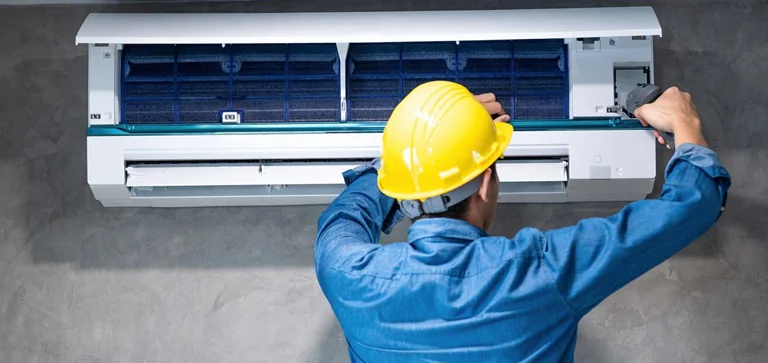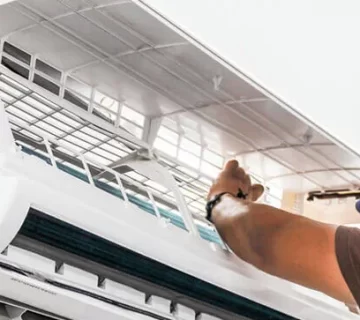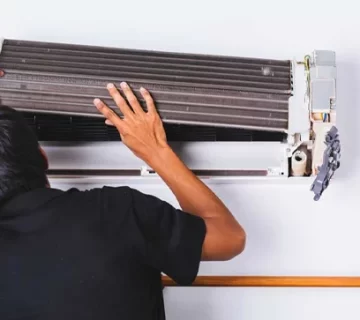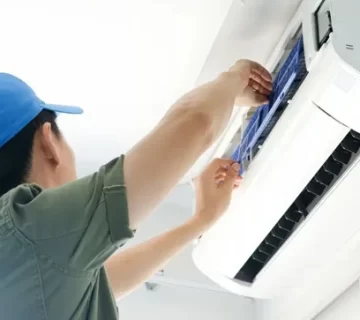During the summer, having a good air conditioning system is not a mere want, but a need that every home and office should have. Though, even the most efficient systems wear out with time, causing high energy costs, inadequate cooling, and frequent breakdowns. Identifying when to replace your air conditioning system helps to keep you comfortable without interruptions.
Older air conditioners pose a challenge in meeting the current standards of living. They range from inconsistent cooling to higher maintenance costs and can make you feel frustrated and poorer. Moving to the newer model gives you many advantages, such as higher energy efficiency, improved IAQ, and the features that suit your life to the ground.
If you are experiencing such signs as often repairs or poor performance of your cooling system, then it is high time for you to Upgrade Your Air Conditioner. In this blog, you will find out 10 clear signs that suggest it is time to upgrade, benefits of the new systems, and how trusted Air Conditioning Spare Parts Store help with the process.
Look into ten obvious signs that you need to replace your AC and how to get the best out of your investment.
1. Frequent Repairs
If you have been contacting the technician more frequently than usual, then there is a problem. Regular failures are not only inconvenient for you but also result in high expenses for their repair or replacement. For instance, frequent replacement of the AC spare parts such as compressors or fans is more economical than replacing a new unit.
2. Rising Energy Bills
An inefficient AC system cools your home poorly and thus will consume a lot of energy to do so. If you find that your electricity or water bill has risen sharply and there has been no change in usage, then it may be high time you upgraded your system. The latest model units can save up to 40% of energy costs.
3. Inconsistent Cooling
Is one room extremely cold while another is extremely hot? In many old systems, uneven cooling is observed, and this is because the systems are not as effective as before. Contemporary air conditioning systems have special options that enable them to cool specific areas of the house uniformly.
4. Strange Noises
An air conditioner should not make a loud noise. If your unit produces grinding, rattling or banging noises, then you can be sure your unit is internally damaged. It might be wiser to replace the unit instead of using and spending money on stop-gap measures which will not be long-term.
5. Poor Air Quality
Your air conditioner also helps in regulating the quality of air in your house. An older system may not be able to remove dust, allergens, and pollutants properly and therefore negatively impact your indoor environment. Upgrading means that you will get better quality of air because when you are using a new unit you may get an AC air filter that has the capability of trapping small particles.
6. System Age
Air conditioners normally have a life expectancy of between 10-15 years. If your unit is within this range or even slightly higher, then your unit is most probably old. Older systems do not incorporate energy-saving features of the modern units and may be draining your pocket more than you think.
7. Frequent Cycling
Is your air conditioner cycling on and off without running through a complete cooling cycle? This is known as short cycling not only a waste of energy but also indicating major internal conditions of the system. The modern systems are designed to operate smoothly and to keep up the high level of performance.
8. High Humidity Indoors
Besides cooling, air conditioners also control the amount of humidity in indoor environment. In case your house is warm and stuffy even when the air conditioning is on, then your system might be struggling. It is also advisable to maintain the humidity levels by upgrading to a newer model of the air conditioner.
9. Lack of Modern Features
Modern air conditioners have some features such as Wi-Fi connection, programmable thermostats, and eco-mode that help to use electricity efficiently. If your current unit does not have these, you are depriving yourself of convenience and a good amount of money saved.
10. Expensive or Hard-to-Find Spare Parts
Due to technological advancement, it is hard and expensive to find compatible air conditioning spare parts as the system ages. If you find out that repair parts such as motors or condensers are not available in the market, this should be a signal to replace the whole unit.
Pros of Air Conditioning System Upgrade
Energy Efficiency: Contemporary units are fitted with enhanced compressors, energy efficient refrigerants, and sophisticated controls to cut on energy usage.
Improved Comfort: New models provide a more uniform cooling and improved humidity regulation.
Enhanced Air Quality: New systems have better filters to make sure they remove allergens and pollutants from the air.
Reduced Noise: New air conditioners are not noisy as the older versions, making homes much quieter.
Long-Term Savings: Lesser maintenance expenses, reduced power expenses, and longer product guarantees make upgrading the most economical decision.
Get the Most out of Your Investment: The Right Components
If you are not yet in a position to dispose your unit, maintain it with high quality spare parts. Go to a reputable air conditioning spare parts shop for parts such as a compressor, a fan, or a better quality AC air filter to serve the purpose of an extension of your unit’s life for some time. But please remember this is a short-term solution.
Conclusion
This means that if you are able to identify some of these signs early enough, you are likely to avoid a complete breakdown in the middle of summer. Upgrading your air conditioner now means you get to improve your comfort, reduce your bills and have a worry free AC. From consistent cooling to improved air quality, or even additional features, a new air conditioning system is always worth it.




